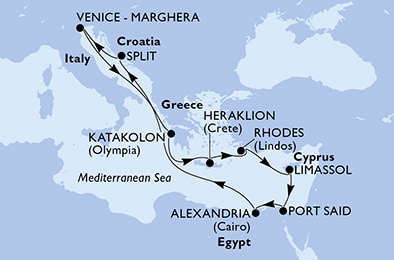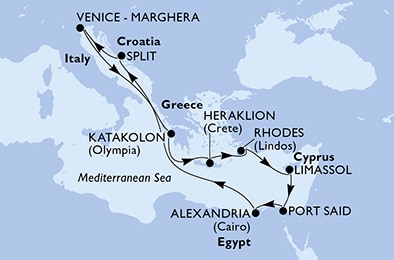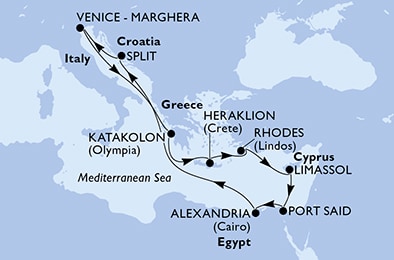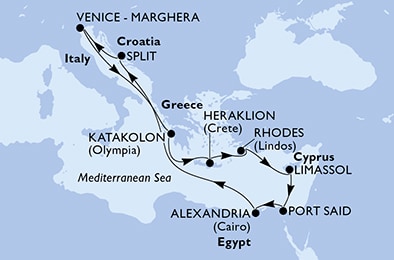
Port Port Said (Suez Canal)
Port Said in Egypt is a significant gateway to the Mediterranean, making it a critical stop for cruise ships. The city's strategic location at the northern end of the Suez Canal offers cruise liners an efficient route between the Red Sea and the Mediterranean Sea. This has led to an increase in the number of cruise ships docking in Port Said, boosting the city's tourism and contributing significantly to the local economy.
While docked, passengers often partake in various activities such as visiting the iconic Port Said Lighthouse, exploring the city's unique blend of Egyptian and European architecture, or indulging in local cuisine. The cruise ships also bring in a stream of tourists who visit the nearby historical sites such as the Pyramids, Sphinx, and the Egyptian Museum in Cairo. This influx of tourists has helped in promoting Egypt's rich cultural heritage to the global audience.
History
The Port Said in Egypt, was established in 1859 during the construction of the Suez Canal by Khedive Said of Egypt. It was officially opened for international navigation on 17th November 1869, marking the completion of the Suez Canal. This port was originally created to serve as a harbor for the ships waiting to cross the canal, and it has since grown into a major global shipping hub.
Over the years, Port Said has played a significant role in several historical events. During the Suez Crisis in 1956, it was heavily bombed by the British and French forces, causing significant damage. However, it was quickly rebuilt and continued to function as a vital link between the Mediterranean and the Red Sea. Today, it remains a significant symbol of Egypt's maritime history and plays a critical role in the country's economy.


 With bus transport to the port
With bus transport to the port








